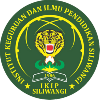TEACHER’S EXPERIENCES OF ONLINE ASSESSMENT IMPLEMENTATION IN TEACHING ENGLISH
Abstract
This study aimed to identify the experience of teachers in implementing online assessments in the process of teaching and learning English at SMK TI Bali Global Singaraja. This study was designed using a descriptive qualitative research method. The data were collected by interview documentation and also observation. This study used the technique of analyzing the data Miles and Huberman Data Analysis which has three phases; (1) data condensation or data reduction, (2) data display (3) drawing and conclusion verification. The results of this study indicated that the English teacher has implemented online assessment through several platforms such as Google Classroom, Instagram, and also lmssmkti.com as the main platform for assessing all skills in English. There were advantages, disadvantages, and difficulties faced by the teacher in implementing online assessment. The difficulties that could be obtained consist of technical and non-technical difficulties both from students and teachers such as internet constraints and teachers who had difficulty using the online assessment platform for the first time, besides many students complained about difficulties using platforms for online assessments. This research was expected to be useful for future researchers in carrying out similar research with different method, instruments and also samples.
References
Amalia, R. (2018). Student’s Perception of Online Assessment Use in Schoology in EFL Classrooms. Sunan Ampel State Islamic University.
Ananda, R., Fadhilaturrahmi, & Hanafi, I. (2021). Jurnal basicedu. 5(3), 1689–1694.
Arora, A. K., & Srinivasan, R. (2020). Impact of Pandemic COVID-19 on the Teaching – Learning Process : A Study of Higher Education Teachers. Prabandhan: Indian Journal of Management, 13(4), 43. https://doi.org/10.17010/pijom/2020/v13i4/151825
Barker, K. N. (1980). Data Collection Techniques: Observation. American Journal of Health-System Pharmacy, 37(9), 1235–1245. https://doi.org/10.1093/ajhp/37.9.1235
Creswell, J. W. (2017). Social and Administrative Sciences. 4(June), 3–5.
Febriani, I., & Irsyad Abdullah, M. (2018). A systematic review of formative assessment tools in the blended learning environment. International Journal of Engineering and Technology(UAE), 7(4), 33–39. https://doi.org/10.14419/ijet.v7i4.11.20684
Gikandi, J. W. (2012). Online Formative Assessment in Higher Education : Enhancing Continuing Teacher Education in E-Learning. University of Canterbury,New Zealand.
Haderani. (2018). Tinjauan Filosofis tentang Fungsi Pendidikan dalam Hidup Manusia. Jurnal Tarbiyah : Jurnal Ilmiah Kependidikan, 7(1), 41–49. https://doi.org/10.18592/tarbiyah.v7i1.2103
Hricko, M., & Howell, S. L. (2006). Online Assessment and Measurement (1st ed.). Information Science Publishing.
Joshi, A., Vinay, M., & Bhaskar, P. (2021). Impact of coronavirus pandemic on the Indian education sector: perspectives of teachers on online teaching and assessments. Interactive Technology and Smart Education, 18(2), 205–226. https://doi.org/10.1108/ITSE-06-2020-0087
Kaup, S., Jain, R., Shivalli, S., Pandey, S., & Kaup, S. (2020). Sustaining academics during COVID-19 pandemic: The role of online teaching-learning. Indian Journal of Ophthalmology, 68(6), 1220. https://doi.org/10.4103/ijo.IJO_1241_20
Khairil, & Mokshein. (2018). 21 st Century Assessment : Online Assessment. https://doi.org/10.6007/IJARBSS/v8-i1/3838
Miles, M. B., Huberman, A. M., & Saldana, J. (2014). Qualitative Data Analysis a Methods Sourcebook (4th ed.). Sage Publication, Inc. https://books.google.co.id/books?id=lCh_DwAAQBAJ&lpg=PP1&ots=2SevLAwm7b&dq=Qualitative Data Analysis a Methods Sourcebook&lr&hl=id&pg=PR3#v=onepage&q=Qualitative Data Analysis a Methods Sourcebook&f=false
Padayachee, P., Town, C., Africa, S., Johannes, H., Elizabeth, P., & Africa, S. (2018). Online Assessment In Moodle : A Framework For Supporting Our Students.
Parni, P. (2020). Upaya meningkatkan keterampilan menyusun kisi-kisi penilaian melalui in house training. Teacher in Educational Research, 2(1), 22. https://doi.org/10.33292/ter.v2i1.61
Pratama, R. E., & Mulyati, S. (2020). Pembelajaran Daring dan Luring pada Masa Pandemi Covid-19. 1(2), 49–59. https://doi.org/10.30870/gpi.v1i2.9405
Putra, R. L., Maulana, A., & Iriani, T. (2019). Evaluasi Program Pelaksanaan Ujian Online Dengan Menggunakan Learning Management System Moodle Berbasis Android Di Smk Negeri 1 Jakarta. Jurnal PenSil, 8(1), 47–54. https://doi.org/10.21009/jpensil.v8i1.8483
Raja, R., & Nagasubramani, P. C. (2018). Impact of modern technology in education. India Journal of Applied and Advanced Research, 2018(3), 33–35. https://doi.org/10.21839/jaar.2018.v3S1.165
Siahaan, M. (2020). Dampak Pandemi Covid-19 Terhadap Dunia Pendidikan. Jurnal Kajian Ilmiah, 1(1), 73–80. https://doi.org/10.31599/jki.v1i1.265
Syarifudin, A. S. (2020). Impelementasi Pembelajaran Daring Untuk Meningkatkan Mutu Pendidikan Sebagai Dampak Diterapkannya Social Distancing. Jurnal Pendidikan Bahasa Dan Sastra Indonesia Metalingua, 5(1), 31–34. https://doi.org/10.21107/metalingua.v5i1.7072
Weleschuk, A., Dyjur, P., & Kelly, P. (2019). Online Assessment in Higher Education. Taylor Institute for Teaching and Learning at the University of Calgary.
Werdiyanti, N. N. D. (2021). Assessment Process in Teaching and Learning English in the Midst of Covid-19 Pandemic. The Art of Teaching English as a Foreign Language, 2(2), 134–142. https://doi.org/10.36663/tatefl.v2i2.132
Wibisono, M. A., & Hartono, H. (2021). Online Learning Policies and Indonesian Language Learning Constraints during the Covid-19 Pandemic. Randwick International of Education and Linguistics Science Journal, 2(4), 637–646. https://doi.org/10.47175/rielsj.v2i4.360
Downloads
Published
Issue
Section
License
Copyright (c) 2023 PROJECT (Professional Journal of English Education)

This work is licensed under a Creative Commons Attribution-ShareAlike 4.0 International License.











